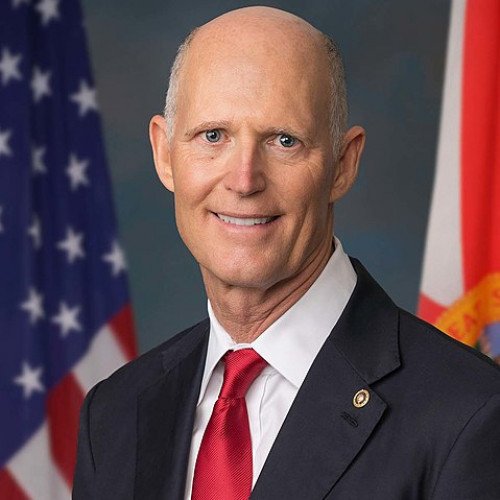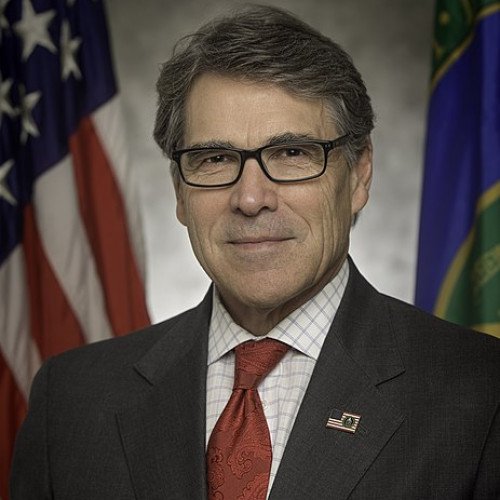Rick Scott VS Rick Perry

Rick Scott
Richard Lynn Scott (né Myers, December 1, 1952) is an American politician and businessman serving as the junior United States senator from Florida, serving in that office since 2019. A member of the Republican Party, he was the 45th governor of Florida from 2011 to 2019. Scott is a graduate of the University of Missouri–Kansas City and the Dedman School of Law at Southern Methodist University. In 1987, after serving in the United States Navy and becoming a law firm partner, he co-founded Columbia Hospital Corporation. Columbia later merged with another corporation to form Columbia/HCA, which eventually became the largest private for-profit health care company in the United States. Scott was pressured to resign as chief executive of Columbia/HCA in 1997. During his tenure as chief executive, the company defrauded Medicare, Medicaid and other federal programs. The Department of Justice ultimately fined the company $1.7 billion in what was at the time the largest health care fraud settlement in U.S. history. Scott was not charged with a crime. Following his departure from Columbia/HCA, Scott became a venture capitalist and pursued other business interests. Scott ran for governor of Florida in 2010. He defeated Bill McCollum in a vigorously contested Republican primary election, and then narrowly defeated Democratic nominee Alex Sink in the general election. Scott was re-elected in 2014, defeating former governor Charlie Crist. He was barred by term limits from running for re-election in 2018, and instead ran for the United States Senate that year. Scott won the 2018 Florida Senate election, defeating Democratic incumbent Bill Nelson. The initial election results were so close that they triggered a mandatory recount. The recount showed that Scott had won by 10,033 votes; Nelson then conceded the race. Scott took office following the expiration of his term as governor of Florida on January 8, 2019.
Statistics for this Xoptio

Rick Perry
James Richard "Rick" Perry (born March 4, 1950) is an American politician who served as the 14th United States Secretary of Energy from 2017 to 2019 and as the 47th Governor of Texas from 2000 to 2015. Perry also ran unsuccessfully for the Republican nomination for President of the United States in the 2012 and 2016 elections. Born into a family of cotton farmers in Haskell, Texas, Perry graduated from Texas A&M University in 1972 and entered into the United States Air Force, serving a five-year stint and achieving the rank of captain. After leaving the Air Force in 1977, Perry returned to Texas and entered politics, serving as a Democratic member of the Texas House of Representatives from 1985 to 1991. In 1989, Perry switched parties and became a Republican, and was elected Agriculture Commissioner of Texas the following year. In 1998, Perry was elected Lieutenant Governor of Texas, becoming the state's first Republican Lieutenant Governor since Reconstruction. Perry assumed the governorship of Texas in December 2000, after Governor George W. Bush resigned following his election as President. Perry was re-elected Governor three times, becoming the longest-serving Governor in Texas history. As Governor, Perry identified as a staunch conservative, enacting conservative fiscal policies, restrictions on abortion and expanded gun rights. Long considered a potential presidential candidate, Perry officially announced his candidacy for the 2012 Republican nomination for President in August 2011. Perry initially performed well in polling and showed strong fundraising prowess, leading to him being considered a serious contender for the nomination, however his support declined following poor performances in debates and early primaries and he withdrew from the race in January 2012.Perry declined to run for re-election to a fourth term as Governor and left office in 2015, launching a second presidential campaign shortly after. Perry's second presidential campaign failed to garner substantial polling support, fundraising or media attention, leading to him withdrawing from the race after only three months. Perry was initially a vocal opponent of Donald Trump's 2016 campaign for President, however he later endorsed Trump after he secured the Republican nomination. After winning the presidency, Trump appointed Perry as Secretary of Energy and he was confirmed by the United States Senate in a 62–37 vote on March 2, 2017. On October 17, 2019, Perry reported to Trump that he intended to resign as Secretary of Energy at the end of the year. He left office on December 1, 2019.